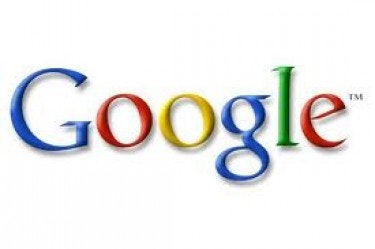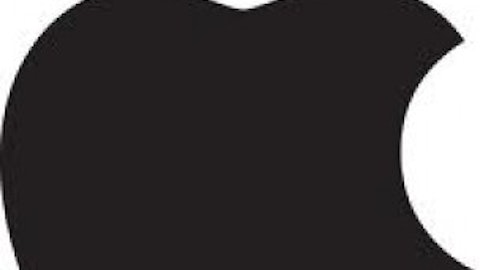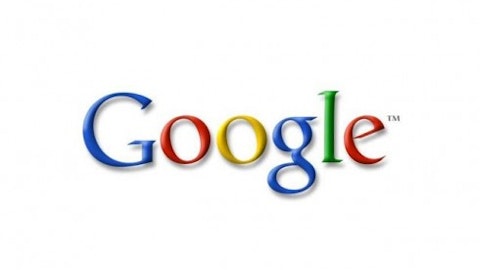Google Inc (NASDAQ:GOOG) has predicted the future of mobile technology for the consumer. If they have anything to say about it, current smartphones may become a thing of the past. This innovative new technology is being developed by Project Glass, a research and development department in Google.
Glass uses a miniature computer that displays a holographic user display; this allows the user to take pictures, record 720p HD video, share images with friends and provide hands-free access to the Internet. Apps for Glass will enable users to translate languages, check flight reservations and much more. The interface is controlled by voice recognition and swipes of the control bar on one side of the frame.
Marketing of Glass
Google Inc (NASDAQ:GOOG) Glass is currently being marketed to tech bloggers, software developers and techies. A “skim” marketing strategy will probably be applied to Glass, focusing on celebrities and people in the public eye. Google will use niche penetration of this product by focusing on a specific demographic who will then influence the mainstream masses to try the device out. Just as the cell phone was specifically marketed to businessmen and doctors when it first came out, Google Glass will slowly trickle down into general use.
Google Glass is basically a $1,500.00 smartphone that you can wear. There already exists a demand for this product as indicated by numerous people signing up in hopes of testing the product before it becomes widely available.
The Google Glass campaign is being marketed via social media, with more than 1.3 million mentions on Twitter to date. Check out the #ifihadglass hashtag on Twitter regarding Project Glass to see how the company is creating a lot of buzz. Saturday Night Live (SNL) even did a spoof on Google Inc (NASDAQ:GOOG) Glass that will bring more attention to this innovative device as well.
Fashionable iconic tech
Google Inc (NASDAQ:GOOG) Glass will have the function of smartphones but will also be a fashion iconic accessory. I predict this technology will blow up globally with celebrities and supermodels rocking this new look.
Warby Parker, the New York-based company, designs eyewear for $95 and now offers sunglasses for $150 as well. Warby’s eyewear sells directly to consumers, allowing them to order directly from the manufacturer to keep prices low in comparison to other brand names. This software company may be partnering with Google to design the look of Glass.
The popularity of this hip company has led to the launch of a retail store in NYC, with another store planned for Boston as well. $41 million investment income has been raised since the first store opened earlier in 2013, although the majority of their products are sold online.
Warby Parker shipped more than 100,000 glasses in 2011 and had expanded from 60 employees to more than 113 employees by the end of 2012. David Gilboa and Neil Blumenthal, the founders of the company, filed with the SEC September 09, 2012 with $36,800,004 sold.
AMEX is investing in the future
How will American Express Company (NYSE:AXP) benefit from investing in Warby Parker? Aside from offering stylish, eclectic eyewear at affordable prices, Warby has a virtual try-on feature that allows potential consumers to view how glasses will look on them online before purchase. If Warby partners with Google they will definitely design Google Glass to be less geeky and awkward looking. Less nerdy-looking glasses equates to more sales and a broader consumer base.
If Warby finalizes its talks with Google then the investment capital from American Express Company (NYSE:AXP) will allow the company to grow and keep up with demand for Google Inc (NASDAQ:GOOG) Glass. Warby will be able to design many variations of the product that will appeal to a wide range of consumers from techies to celebrities.
If Warby Parker partners with Google the implications would be infinite. Imagine paying for your espresso or matcha tea with an American Express app built just for Glass. This finance app could eliminate customers carrying their American Express Company (NYSE:AXP) card with them to make financial purchases. American Express right now offers the Black AMEX card for exclusive customers by invitation only; I can already see an exclusive Black AMEX Google Inc (NASDAQ:GOOG) Glass line for the high-net-worth individual that’s designed by Warby Parker.
Future forecast for Google Glass?
The first iPad was released by Apple Inc. (NASDAQ:AAPL) on April 3, 2010 and retailed between $499.00 – $829.00. The first generation iPad sold three million units in the first 80 days and Apple Inc. (NASDAQ:AAPL) ended 2010 with 15 million units sold, not bad for a highly anticipated product. From April 2010 to April 2012 Apple Inc. (NASDAQ:AAPL) has sold a total of 84 million units.
Research firm IHS has predicted 9.4 million units sold between 2012 and 2016. Shipments for 2013 are expected to be 124,000 units sold to developers for Google Glass. Demand for 2014 for Glass is projected to increase by 250%. New Glass apps to be created by Apple will only increase the sales potential with sales rising to 6.6 million units by 2016. To successfully sell Google Glass, the price will of course have to be decreased to make it affordable for the general public.
BI Intelligence, the research firm for the mobile industry, has projected if the price of Google Glass is reduced to $619.00 – $799.00. Sales could hit 25,000,000 units by 2019, which would amount to a $29 billion profit for Google Inc (NASDAQ:GOOG).
Google Glass could become as game changing as the cellular phone that was first introduced to businessmen and doctors in the 1990s, before sales exploded due to consumer demand.
The article The Future of Mobile Technology originally appeared on Fool.com and is written by Robert Palmer.
Robert Palmer has no position in any stocks mentioned. The Motley Fool recommends American Express and Google. The Motley Fool owns shares of Google. Robert is a member of The Motley Fool Blog Network — entries represent the personal opinion of the blogger and are not formally edited.
Copyright © 1995 – 2013 The Motley Fool, LLC. All rights reserved. The Motley Fool has a disclosure policy.






